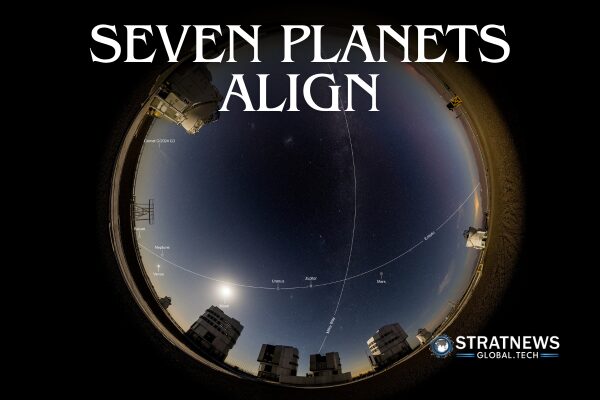Rare Celestial Event: Seven Planets Align in Stunning Astronomical Display
A rare celestial event was captured at Chile’s Paranal Observatory, where seven planets appeared in a small section of the night sky. This extraordinary event, which occurs only once every 400 years, was observed by astronomers and space enthusiasts alike.

According to Chilean astronomer Luis Chavarria Garrido, the alignment is an optical illusion caused by the planets’ orbital paths. While they appear in a straight line from Earth’s perspective, they remain widely separated in the solar system.
“The planets are positioned in what appears to be a straight line in the sky, but we must remember that the planets are not actually close to each other,” Chavarria Garrido explained.
Event Coincides with Chile’s Astronomy Month
The rare alignment has added excitement to Chile’s annual astronomy celebrations in March. This month-long event promotes awareness of the country’s role in space research and highlights upcoming celestial occurrences, including the highly anticipated total lunar eclipse on March 14.
Chile is home to some of the world’s most advanced observatories, benefiting from its clear, dark skies. The Paranal Observatory, operated by the European Southern Observatory, provides a prime location for capturing such rare astronomical events.
Light Pollution Threatens Chile’s Dark Skies
Despite Chile’s status as a global hub for astronomical research, experts warn that increasing light pollution poses a growing threat. Expanding industrial projects, particularly in the mineral-rich northern regions, are disrupting the pristine night skies essential for scientific observations.
Astronomers have raised concerns that urban development could compromise the clarity of Chile’s skies. While efforts are being made to balance industrial growth with sky preservation, the challenge remains significant. Chavarria Garrido and other scientists stress the need for protective measures to ensure that Chile remains a leader in astronomical discoveries.
With inputs from Reuters


